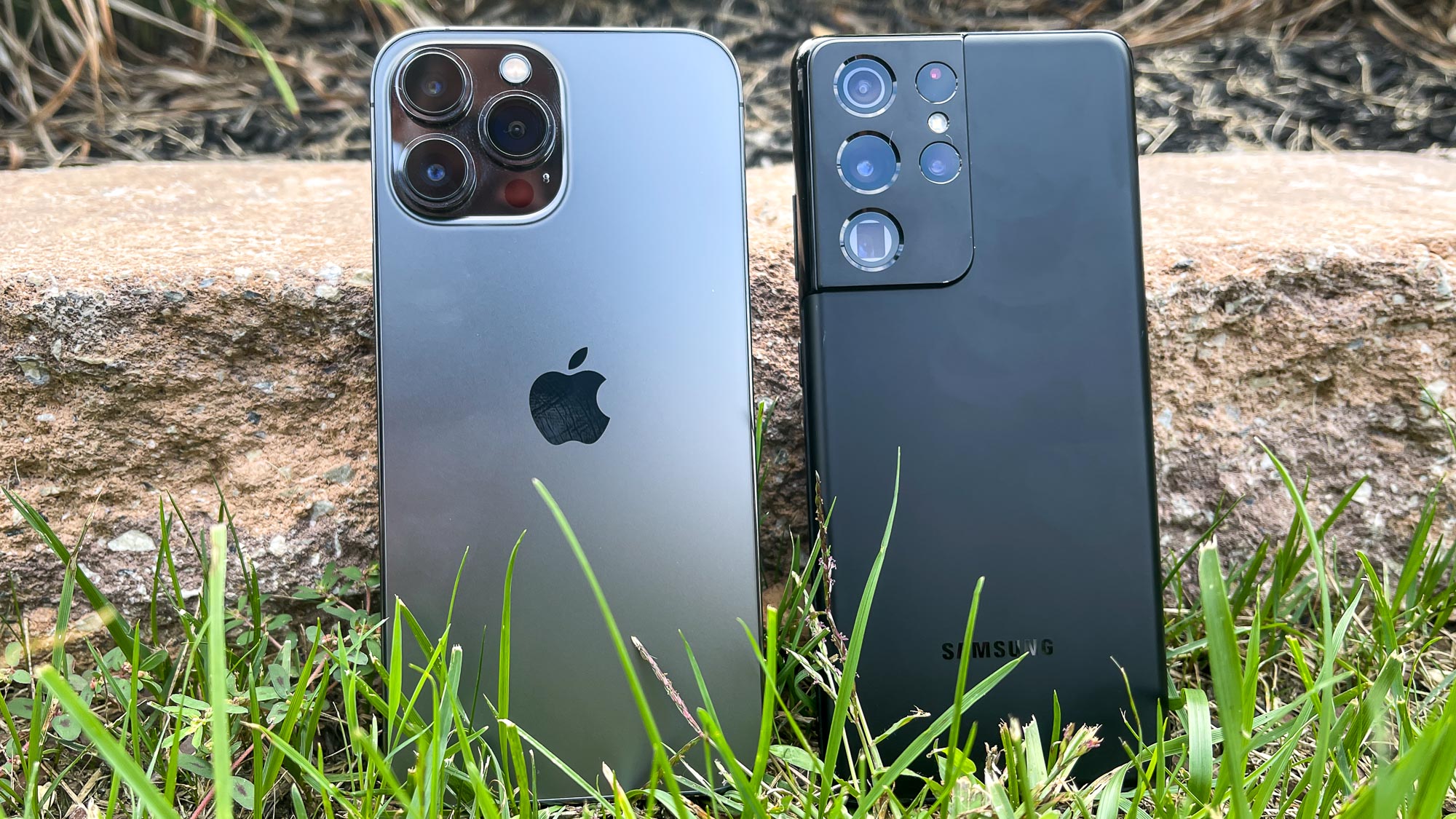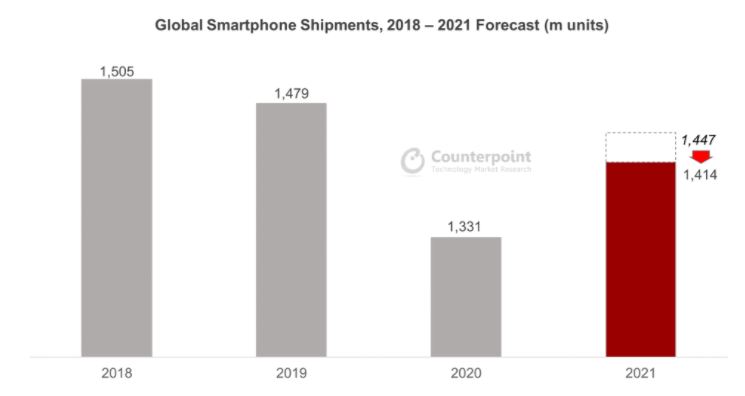Global chip shortage hitting Samsung worse than Apple
New report shows entire smartphone industry is getting hit but Apple has been more ‘resilient’

The global chip shortage has impacted everything from car production to PS5 restocks, but while the smartphone industry has been reasonably resilient, it’s due to get worse according to a new report from Counterpoint Research.
The shortage is apparently “hitting [the] smartphone industry hard," and as such the firm is revising its estimate for smartphone shipments down from 1.45 billion units down to 1.41 billion.
- iPhone vs. Android: Which is better for you?
- The best iPhones in 2021
- PLUS: Windows 11 could be bad news for gaming PCs — here’s why
That may not sound like a dramatic change, but bear in mind that the coronavirus-suppressed sales figures last year capped at 1.33 billion, and you can see this isn’t the bounce back many would expect as the world opens up.

Counterpoint puts this squarely down to supply being unable to keep up with demand, and notes that “some smartphone OEMs and vendors are reporting they had only received 80% of their requested volumes on key components during Q2.” In Q3, the firm added, it seems to be getting worse, with some vendors only receiving 70%.
The report noted that 90% of the industry is affected, but the pain isn’t spread evenly. “The semiconductor shortage seems to affect all brands in the ecosystems,” explained Counterpoint’s Research Director Tom Kang, namechecking big hitters like Samsung, Oppo and Xiaomi.
There was, however, one company that seems to be more immune than others: Apple. “Apple seems to be the most resilient and least affected by the AP shortage situation,” Kang added.
But even Apple has sounded the alarm that stock may not flow quite as smoothly as it would in normal times. On its most recent call to investors, the company warned those on the call that growth could be impacted by shortages. “We expect supply constraints during the September quarter to be greater than what we experienced during the June quarter,” Apple’s chief financial officer Luca Maestri said at the time. “The constraints will primarily impact iPhone and iPad.”
Get instant access to breaking news, the hottest reviews, great deals and helpful tips.
So far, just as Counterpoint’s research suggests, iPhone 13 shortages don’t appear to be a thing, but others haven’t been so lucky.
A previous report from Wave7 suggested that vendors were especially struggling to keep stock of mid-range Samsung and OnePlus handsets, and Google was forced to limit its Pixel 5a launch to just two territories: the United States and Japan. We're expecting the Google Pixel 6 to arrive some time this month, but we'd not be surprised to see it in short supply or be part of a staggered rollout when it's finally released.
Meanwhile, the fate of the Samsung Galaxy S21 FE — once feared cancelled due to chip shortages — is once again severely in doubt.
The ongoing chip crisis may mean that phone manufacturers have to be a little more selective in the handsets they prioritize in the short to mid-term. Samsung, for example, looks like it will be pseudo reintroducing the Galaxy Note — cancelled due to the chip shortage for 2021 — as the Ultra model of the Samsung Galaxy S22, reducing five potential flagship handsets to just three.
- More: The best Android phones in 2021
Freelance contributor Alan has been writing about tech for over a decade, covering phones, drones and everything in between. Previously Deputy Editor of tech site Alphr, his words are found all over the web and in the occasional magazine too. When not weighing up the pros and cons of the latest smartwatch, you'll probably find him tackling his ever-growing games backlog. He also handles all the Wordle coverage on Tom's Guide and has been playing the addictive NYT game for the last several years in an effort to keep his streak forever intact.

